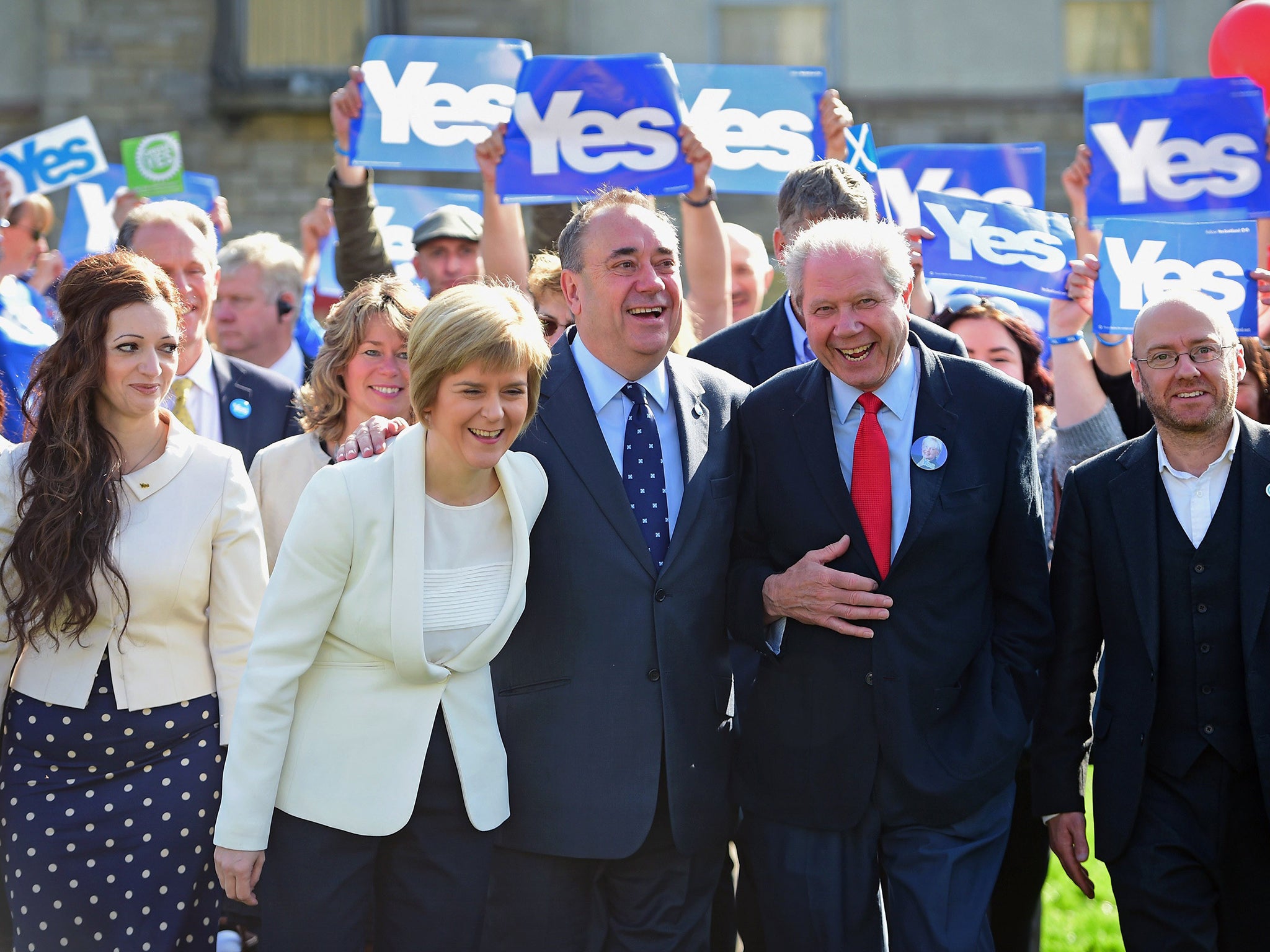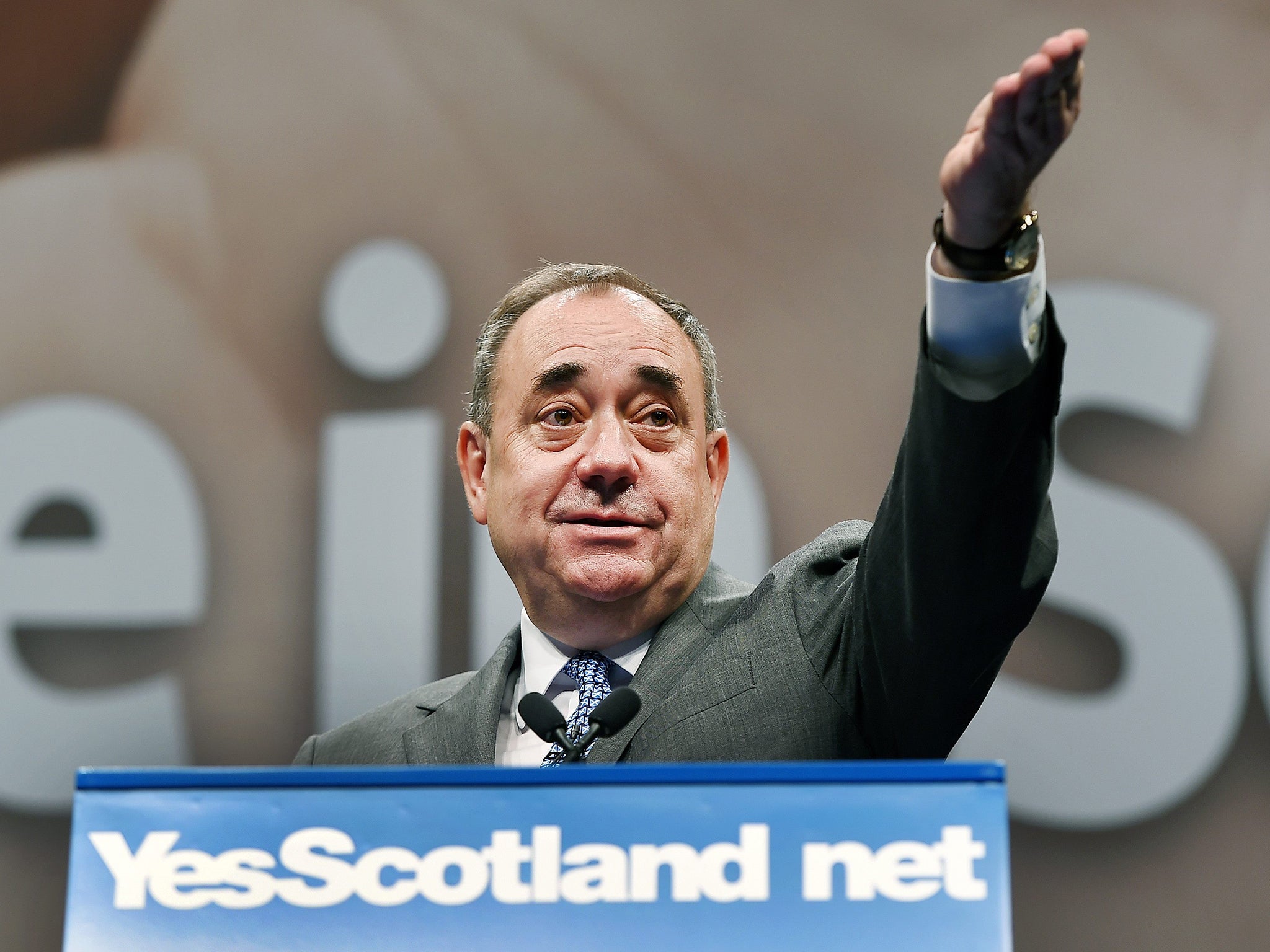Scottish independence: £17bn 'drained from UK economy' as vote prompts 'Great Depression' fears
Several international companies have raised concerns over secession

Your support helps us to tell the story
From reproductive rights to climate change to Big Tech, The Independent is on the ground when the story is developing. Whether it's investigating the financials of Elon Musk's pro-Trump PAC or producing our latest documentary, 'The A Word', which shines a light on the American women fighting for reproductive rights, we know how important it is to parse out the facts from the messaging.
At such a critical moment in US history, we need reporters on the ground. Your donation allows us to keep sending journalists to speak to both sides of the story.
The Independent is trusted by Americans across the entire political spectrum. And unlike many other quality news outlets, we choose not to lock Americans out of our reporting and analysis with paywalls. We believe quality journalism should be available to everyone, paid for by those who can afford it.
Your support makes all the difference.Almost £17 billion has been pulled out of the UK economy in the last month amid concern over the Scottish independence referendum.
A report, by London-based consultancy CrossBorder Capital, claimed it was the biggest drain of financial assets since the Lehman crisis in 2008.
The news comes as the economic future of an independent Scotland takes centre stage in the increasingly bitter independence debate.
With just six days left until Thursday’s vote, nationalists have accused David Cameron of orchestrating a scare campaign with business leaders to frighten voters into keeping the union.
But No campaigners insist there are serious flaws in Alex Salmond’s economic plan for an independent Scotland and separation brings financial uncertainty.
Yes campaigners are pushing back against firms saying they may move operations out of Scotland if it secedes by threatening nationalisation.

Jim Sillars, the former deputy leader of Salmond’s Scottish National Party (SNP), warned of a “day of reckoning” for oil giant BP and finance companies.
“This referendum is about power, and when we get a 'Yes' majority we will use that power for a day of reckoning with BP and the banks,” he was quoted by Scottish media as saying.
“BP, in an independent Scotland, will need to learn the meaning of nationalisation, in part or in whole, as it has in other countries who have not been as soft as we have been forced to be.”
In BBC radio interview on Saturday, he afterwards said that nationalisation was not officially on the table.
The chief executive of BP, Bob Dudley, had said Scottish independence would cause his company “uncertainties” over its North Sea industry.
“As a major investor in Scotland – now and into the future – BP believes that the future prospects for the North Sea are best served by maintaining the existing capacity and integrity of the United Kingdom,” he added.
Mr Sillars claimed the heads of BP and similar companies were “rich men in cahoots with a rich English Tory Prime Minister to keep Scotland’s poor poorer through lies and distortion."

He also said banks such as Standard Life would face tougher employment laws after a vote for independence.
Major banks, oil companies and supermarkets have been among the companies voicing concern about secession, especially as uncertainty about keeping the pound and a central bank continues.
Deutsche Bank compared a vote for independence to Winston Churchill's decision to return the pound to the Gold Standard, which helped bring on the Great Depression.
"These decisions - well-intentioned as they were - contributed to years of depression and suffering and could have been avoided had alternative decisions been taken," David Folkerts-Landau, its chief economist, said in a note to clients.
"Foreign investors come to Scotland because they rely on a predictable investment environment. All of this comes from a united Great Britain."
Recent polls have shown a late surge in support for independence, unsettling Westminster enough to spark calls for the Queen to intervene in the debate.
North Korea is one of the few countries to come forward in support for an independent Scotland, with Kim Jong-un reportedly “feeling positive” about the potential change.
Additional reporting by PA
Join our commenting forum
Join thought-provoking conversations, follow other Independent readers and see their replies
0Comments